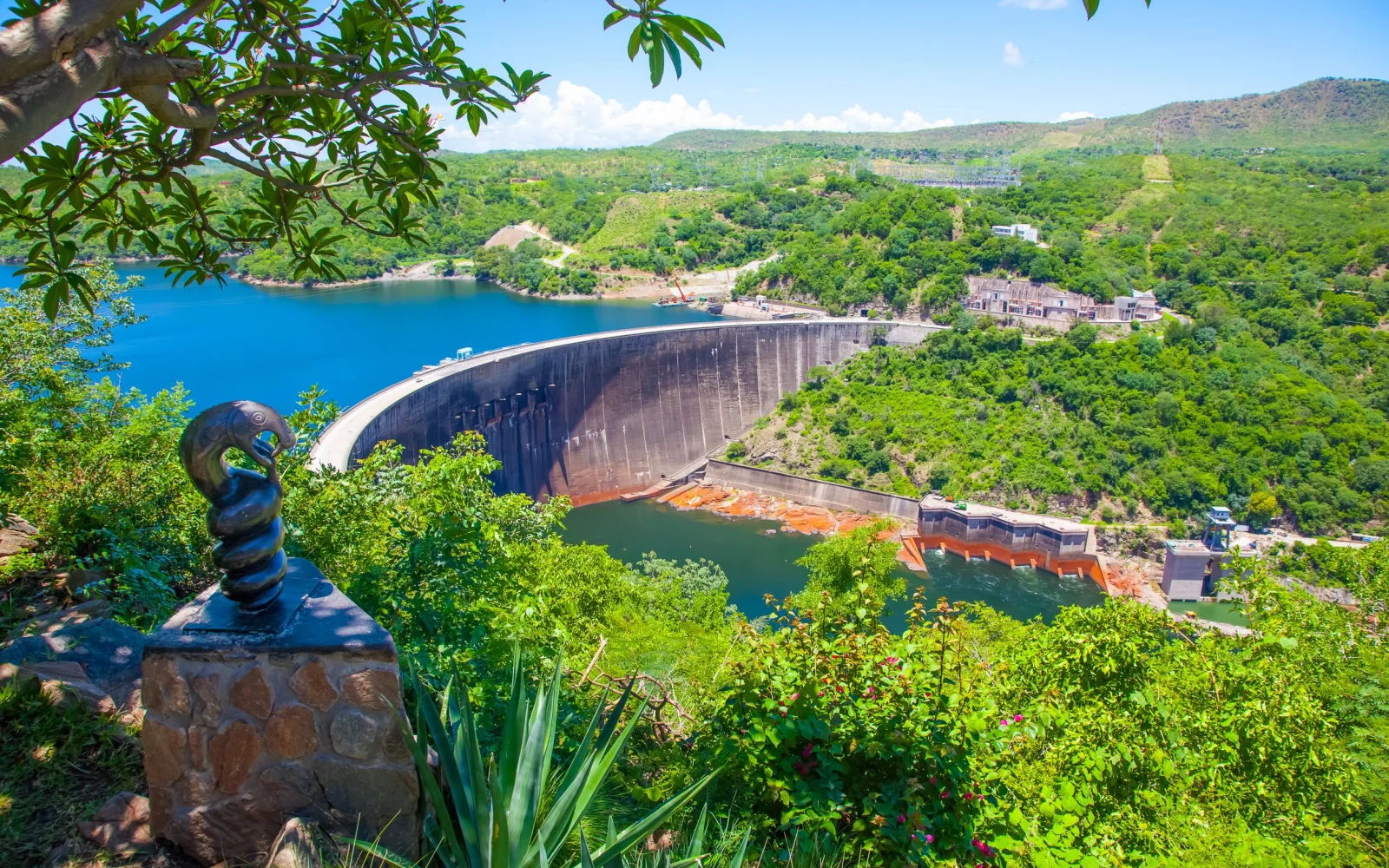The southern African country of Zimbabwe is a popular destination for lovers of nature. In 2018, over 2.5 million tourists visited the country to discover its charms.
The country’s natural beauty is the main reason why people want to visit Zimbabwe. It is home to one of the seven natural wonders of the world, Victoria Falls.
Lovers of wildlife can visit natural parks such as Hwange National Park to see animals such as elephants in their natural habitats. Zimbabwe also has a rich history and culture, which you can explore at sights such as Great Zimbabwe.
Whenever you plan a destination to a new place, after picking out your itinerary, the next thing you should probably research is safety. You don’t want an unsafe encounter to ruin your memories of vacation.
But don’t worry — our travel experts rounded all you need to know to help you figure out if Zimbabwe is a safe destination or not. Let us be your guide!
Is Zimbabwe Safe to Visit in 2026?
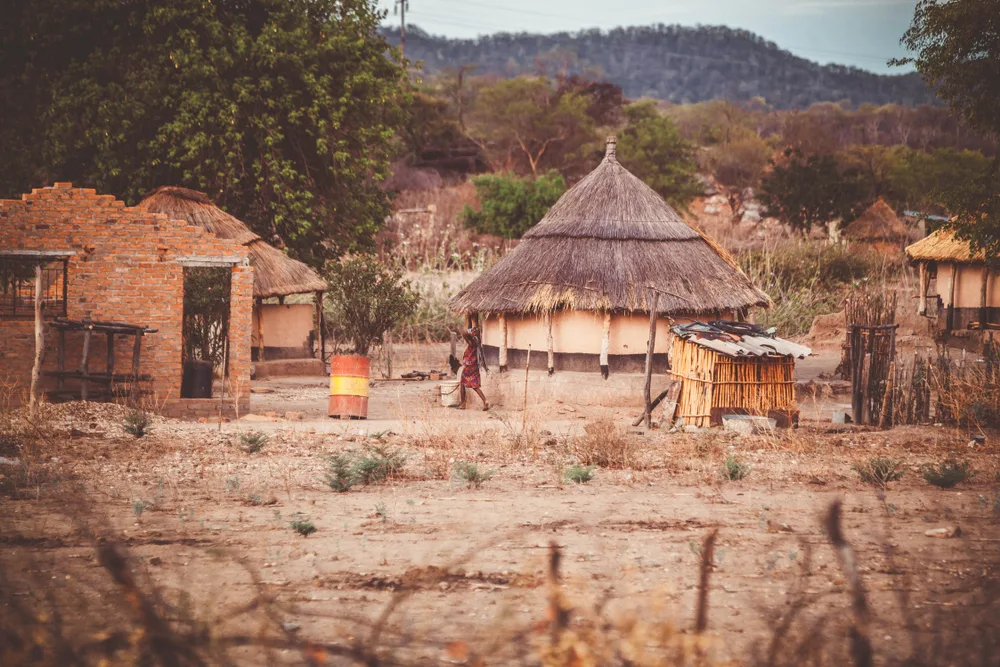
Eva Mont/Shutterstock
While you can visit Zimbabwe, you will have to be on your guard when you visit. The crime rate is high, and opportunistic theft and even violent crimes sometimes affect tourists.
The political situation in the country is tense, and civil unrest is fairly common. Before traveling to Zimbabwe, you should probably read up on the political situation.
Since 2017, when long-time president (and dictator, according to some) Robert Mugabe was deposed in a coup d’état, Zimbabwe has been gripped by political instability as the ruling party fights over a successor.
Protests are frequent as people respond to corruption, increasing government crackdowns, and an economic downturn.
The government responded with more abuses by state security forces that have been denounced by international organizations such as Human Rights Watch. Protests continue despite the threat of repression, but it is almost a given that they will be met with violence.
You may run into demonstrations while you are in Zimbabwe, especially if you visit the capital Harare. However, the best course of action is to avoid joining any demonstrations as you might run into trouble if authorities notice you there.
Another major problem plaguing Zimbabwe is crime. Crime is the biggest reason that countries such as the United States cite when advising their citizens to exercise increased caution in their travel advisories for Zimbabwe.
Crimes you might encounter in Zimbabwe include:
- Pickpocketing
- Bag snatching
- “Smash and grab” thefts
- Mugging
- Robbery
- Armed robbery
- Assault
- Carjacking
- Break-ins
Tourists are often targeted for these crimes because criminals assume that they have more money than locals. Even if you are lucky and don’t experience any crime while you are in Zimbabwe, it is still a good idea to be on your guard, just in case.
Before visiting Zimbabwe, keep in mind that the infrastructure is probably worse than what you are used to. The country experiences regular flooding during the rainy season, which lasts from November to April, which can damage infrastructure further.
There are regular electrical and water rationing shut-offs due to strains on the country’s power grid and water supply. Always keep extra bottled water and a charging bank with you to be ready for these changes.
Crime in Zimbabwe
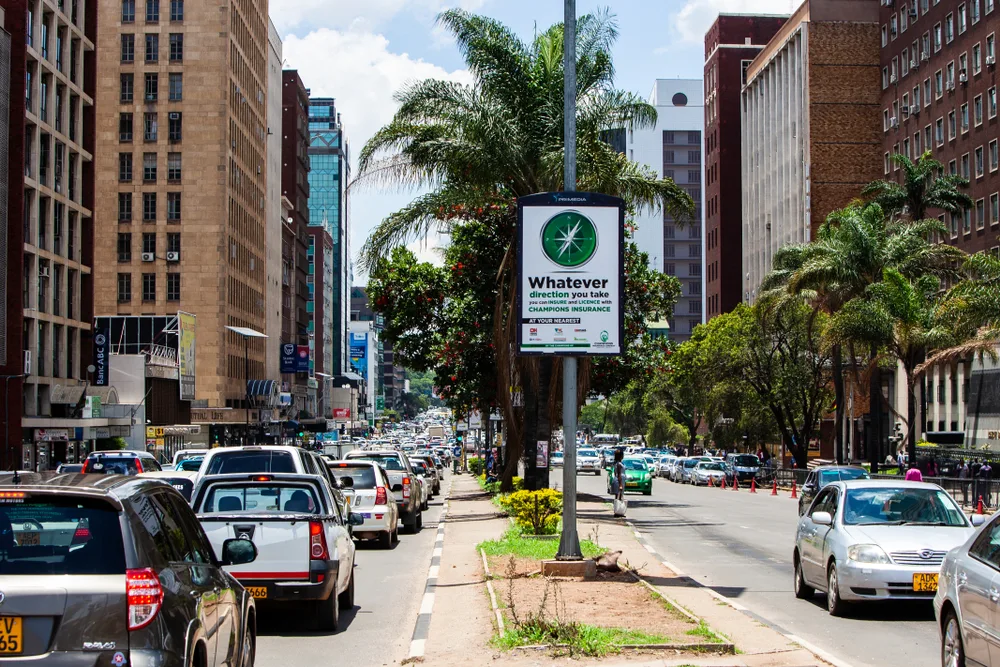
Busy street in Harare. Harare, Zimbabwe, 20th. of December 2018/Kim Ries Jensen/Shutterstock
For many visitors, crime is their biggest concern when visiting Zimbabwe. It is with good reason — as the country struggles to manage its soaring crime rate.
It is one of the first problems that other countries mention in their travel advisories for Zimbabwe. Crime statistics for Zimbabwe reveal the extent of the problem.
According to World Bank data from 2021, the homicide rate in Zimbabwe is six incidents per 100,000 people.
This number was lower than in previous years, in part thanks to the COVID-19 lockdowns of 2020 and 2021, but homicides are beginning to trend upward again. Violent crime is a primary cause for concern in Zimbabwe.
Common violent crimes include assault and armed robbery, as well as sexual assault and homicide. The high number of illegal weapons coursing through Zimbabwe fuels gun violence and other violent crimes.
Various societal factors are behind the high rates of violent crime. Zimbabwe is a country with a 38.3% poverty rate, according to the World Bank, with frequent shortages, lack of access to mental health care, and no social safety net — all factors that contribute to high rates of crime.
High poverty plays a factor in many crimes that occur in Zimbabwe, including organized crime. According to the Global Organized Crime Index, poor socio-economic conditions in Zimbabwe are fueling an increase in human trafficking.
Organized criminal networks are often connected to the state and behind crimes such as human trafficking, heroin smuggling, and illegal logging. The crime prognosis for Zimbabwe is not positive.
In April 2022 alone, crime increased by 12% compared to previous months, and it has been increasing ever since. The crime that increased the most was burglaries at 33%.
The most common crimes in Zimbabwe are property crimes, such as vehicle theft, theft from vehicles, residential break-ins, and burglaries. This shows that the rise in crime is fueled by economic instability as the desperation of poverty pushes many people into crime.
As the Zimbabwean economy shows no sign of improving, it is unlikely that the rate of crime will decrease any time soon. What does this mean for visitors to Zimbabwe?
Obviously, the people that suffer the most from Zimbabwe’s instability and high crime rate are locals who have to live there all year round.
However, tourists and ex-pats are affected by the high crime rate as well. Many sites warn visitors that criminals often target foreigners in Zimbabwe because they know people from abroad are more lucrative targets.
It is possible to visit Zimbabwe safely. However, you will have to take extra precautions during your trip, keeping the high crime rate in mind.
Theft
The most likely crime you will encounter in Zimbabwe is theft. Petty theft in several different forms is common in the country. You might encounter pickpocketing, bag snatching, scams, or “smash and grab” thefts from vehicles.
The Canadian government warns about the prevalence of petty theft in Zimbabwe. Hotspots for theft include Harare, Bulawayo, Victoria Falls, Hwange National Park, and Mana Pools National Park.
Big cities, popular tourist destinations, and even campsites where foreigners congregate are often targeted by criminals. The Irish government issues tips to its citizens for avoiding petty crime that might be helpful for everyone.
Since street crime is so common, you will need to be vigilant about your possessions when you are out and about. Carry a copy of your passport instead of the real document, as ID theft is common.
Always have some spare cash tucked away in a hidden place that is not close to your wallet so you have a way to get home if you do get robbed.
Some precautions can help you avoid being a target for crimes. Try not to carry too many valuables with you — leave expensive jewelry and watches in your home country and extra cash in a hotel safe.
Never leave your bags unattended, even for a few seconds, in a café or bus station. Thefts from vehicles are common in Zimbabwe.
Criminals will target parked cars or even cars with occupants in them that are stuck in traffic, using the “smash and grab” technique of smashing the car windows, grabbing valuables, and running.
Always keep windows closed and car doors locked. Never leave your bags, especially with valuables, sitting out on the seat, and put them somewhere that is not visible.
Robbery
Petty street crime is not the biggest problem you will face in Zimbabwe. Violent robberies such as street muggings, carjackings, and break-ins are sadly common throughout the country.
Many robbers target foreigners as they are more lucrative targets. The UK government warns about the moderate risk of crime in Zimbabwe, including armed robbery, burglaries, and street muggings.
Street robberies are common, especially after dark. You can take a few precautions to avoid being the victim of a serious crime in Zimbabwe.
Since most violent robberies occur after dark, the best precaution you can take is to get home safely before dark. Keep in mind that even in big cities, street lighting is poor, so you will not feel safe even on big roads.
Avoid flashing valuables as that makes you a target — for example, many muggers target people wearing jewelry. Put phones, cameras, and wallets away as soon as you are done using them.
According to the Australian government advisory, another area where robbers attack victims is around ATMs, where people leave with cash.
Only use ATMs during the day, and choose those inside buildings with good security, such as bank buildings. Armed robbers have broken into properties belonging to ex-pats and wealthier locals in the past.
Make sure that your accommodations have good security. Never tell anyone where you are staying, and if you notice that you are being followed, move to a well-lit area and seek help quickly.
Avoiding Bad Areas
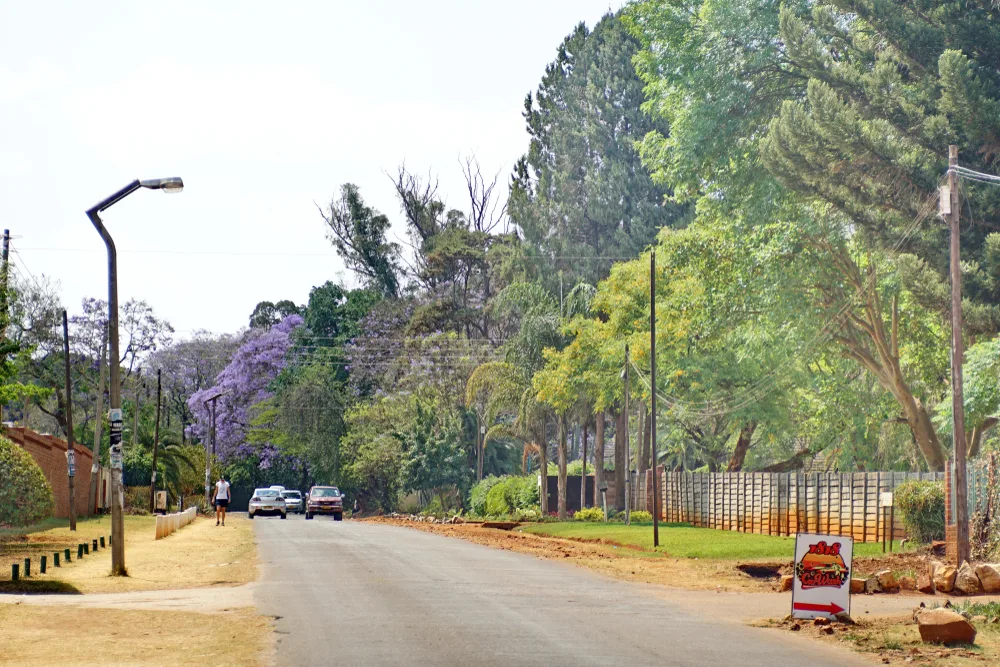
HARARE, ZIMBABWE – CIRCA OCTOBER 2016: Residential street lined with blooming jacaranda trees/Angela N Perryman/Shutterstock
Avoiding dangerous areas can help you stay safe in Zimbabwe. Downtown Harare has some districts that are higher in crime.
For example, be careful on Airport Road, Churchill, Borrowdale, and Masvingo-Beitbridge roads due to the high risk of thefts from vehicles and carjackings. Don’t visit the Marange area, as the government restricts access due to the diamond mines.
Things to Consider
Here are some other things to keep in mind when visiting Zimbabwe:
- The police are unlikely to help. Police are understaffed, underpaid, and sometimes corrupt. When you report a crime, you will have to go to the police station as police don’t go in the field (unless someone pays for their transportation costs).
- Stock up on medication, including anti-malarial medication, before you go. Most of Zimbabwe is in a high-risk area for malaria. Medical facilities are often poor, especially outside of Harare.
- Research safari guides and other adventure activities carefully. Tourists have been killed while on tours due to poor safety procedures. Before engaging in any dangerous activity, make sure that you read previous reviews of the tour operator and research their certifications carefully.
- Be careful around the local wildlife. Animals such as elephants are important tourism draws in Zimbabwe, but no matter how cute they are, these are wild animals at heart. Never approach wild animals and follow any safety advice in national parks.
Frequently Asked Questions
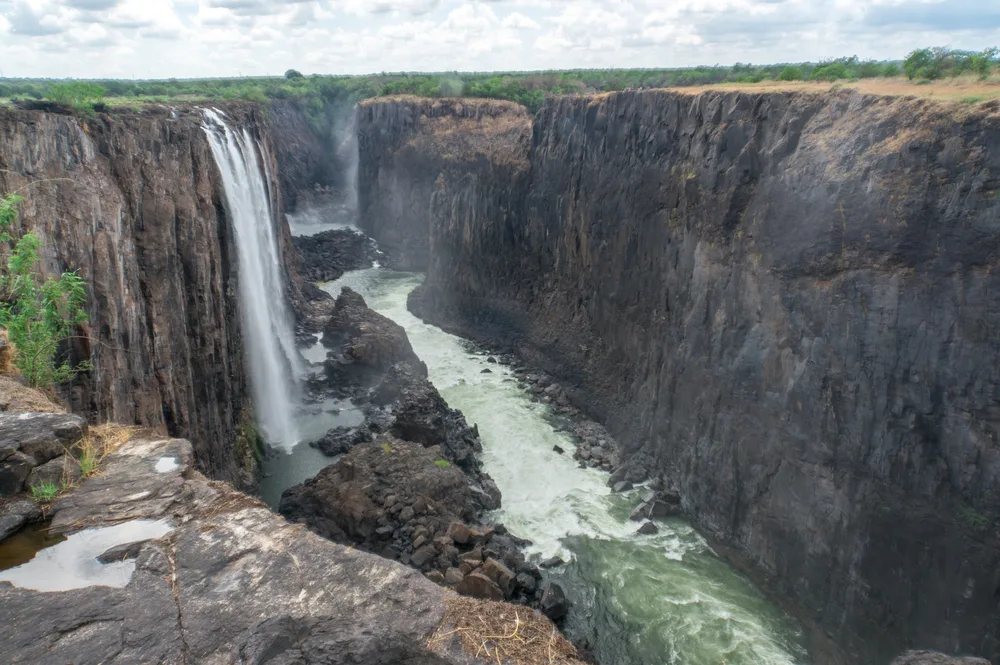
Scott Biales Ditch TheMap/Shutterstock
Here are some other questions you might want to ask before visiting Zimbabwe:
Is it safe to travel by road in Zimbabwe?
Traveling by road is often the only option for traveling around Zimbabwe, but it is sometimes dangerous. Road conditions are poor, and there are highway robbers. Stick to main roads when possible and only drive during the day.
Is Harare safe for tourists?
Harare has a high crime rate, and tourists are sometimes robbed while in the capital. If you visit, make sure that you keep a close eye on your valuables and take precautions with your safety in mind.
Is Zimbabwe a cheap country to visit?
Zimbabwe is one of the more affordable southern African destinations. There are accommodation options and tour choices for several different travel styles, from budget to luxury travelers.
Is it safe to travel to Victoria Falls, Zimbabwe?
Victoria Falls is one of Zimbabwe’s most popular tourist destinations and also one of its safest. The government has a vested interest in keeping it safe and secure for foreign visitors and invests in additional resources, including designated tourism police.
Is Zimbabwe safer than South Africa?
Zimbabwe is probably safer to visit than South Africa in terms of crime as the crime rate, although still high, is lower than in the neighboring country. However, South Africa may feel safer as the infrastructure is much better.
So, Is It Safe to Visit Zimbabwe?
Zimbabwe is an attractive destination due to its beautiful nature, which is why millions of people visit each year despite the high crime rate and civil unrest.
As long as you head for the natural parks, spend little time in the cities, and keep a firm grasp on your valuables at all times, you can have a great time. So, with so much to see and do, what are you waiting for — book your trip to Zimbabwe today!



